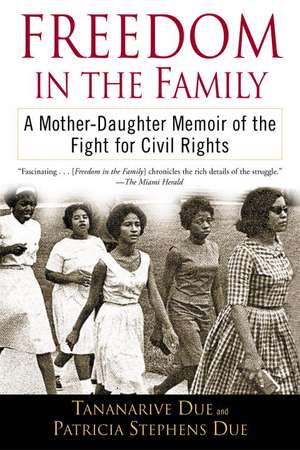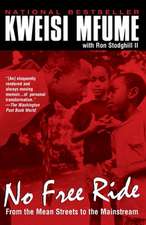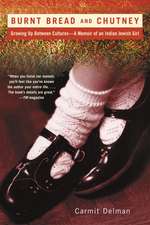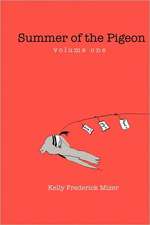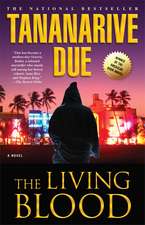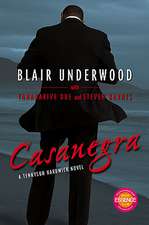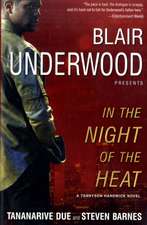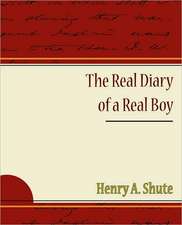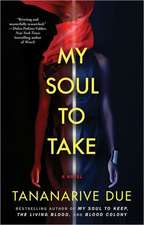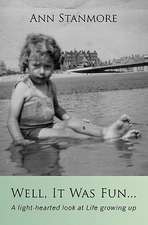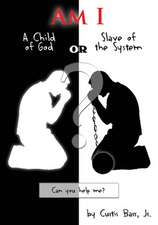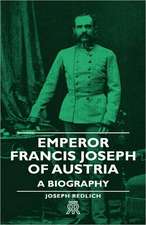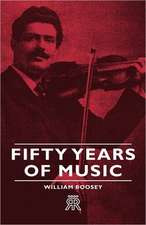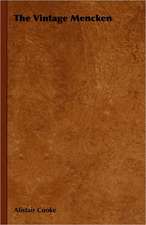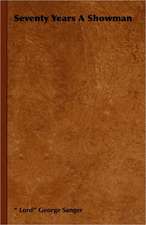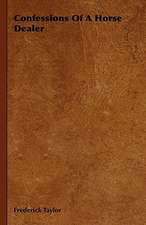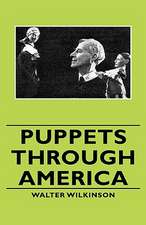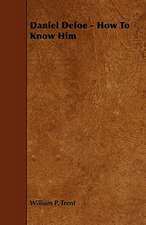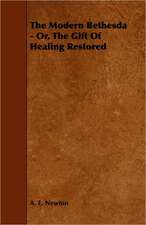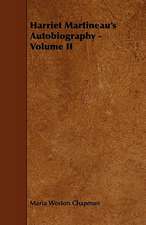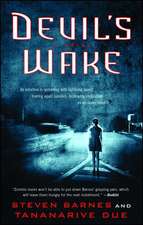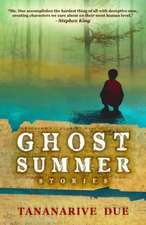Freedom in the Family: A Mother-Daughter Memoir of the Fight for Civil Rights
Autor Tananarive Due, Patricia Stephens Dueen Limba Engleză Paperback – 30 noi 2003
Vezi toate premiile Carte premiată
Preț: 166.23 lei
Nou
Puncte Express: 249
Preț estimativ în valută:
31.81€ • 33.29$ • 26.47£
31.81€ • 33.29$ • 26.47£
Carte disponibilă
Livrare economică 10-24 martie
Preluare comenzi: 021 569.72.76
Specificații
ISBN-13: 9780345447340
ISBN-10: 0345447344
Pagini: 416
Dimensiuni: 141 x 218 x 26 mm
Greutate: 0.54 kg
Ediția:Trade Pbk.
Editura: One World/Ballantine
Locul publicării:New York, NY
ISBN-10: 0345447344
Pagini: 416
Dimensiuni: 141 x 218 x 26 mm
Greutate: 0.54 kg
Ediția:Trade Pbk.
Editura: One World/Ballantine
Locul publicării:New York, NY
Notă biografică
Tananarive Due is a former features writer for the Miami Herald. She has written many highly acclaimed novels, including The Black Rose and My Soul to Keep. She received a 2002 American Book Award for her novel The Living Blood. Ms. Due makes her home in Longview, Washington, with her husband, novelist Steven Barnes.
Patricia Stephens Due was a civil rights activist with CORE while attending Florida A&M University. In 1960, based on her nonviolent stand during a landmark “jail-in,” she received the prestigious Gandhi Award. She is married to a civil rights lawyer, has three daughters, and continues to work for change in America. Over the years, she has conducted civil rights workshops and re-enactments for colleges, public schools, civic groups, and churches. She lives in Miami, Florida, with her husband, John Due.
From the Hardcover edition.
Patricia Stephens Due was a civil rights activist with CORE while attending Florida A&M University. In 1960, based on her nonviolent stand during a landmark “jail-in,” she received the prestigious Gandhi Award. She is married to a civil rights lawyer, has three daughters, and continues to work for change in America. Over the years, she has conducted civil rights workshops and re-enactments for colleges, public schools, civic groups, and churches. She lives in Miami, Florida, with her husband, John Due.
From the Hardcover edition.
Extras
One
Patricia Stephens Due
"The American Negro must remake
his past in order to make his future."
--Arthur A. Schomburg
There are so many misconceptions today about the civil rights movement. People think blacks were a unified front in the "old days," with everyone marching and holding hands. Well, that's not true. If only it had been that easy! Just like today, in cities and towns across the South, there were always a select few who lit the fires and went to the meetings--and, eventually, others followed. Dr. Martin Luther King wasn't the only one lighting the fires. He had a lot of influence, but he was only one man. It concerns me when I hear people say If only we had Martin Luther King today, as if we are helpless without him.
I wish we had Dr. King today, too. But Dr. King did not create the Movement. There were hundreds and thousands of ordinary people who did extraordinary things. Daily heroism went unrewarded and unrecorded. Some heroes were children, and some were retired. They were maids, ministers, students, teachers, housewives.
And they suffered! Their families suffered. Their jobs suffered. I know people who never recovered from the Movement. I know people who today cannot bring themselves to talk about what happened to them during that era. I know people who had to spend time in mental institutions. I knew people who committed suicide. I knew people who died. And they were all ordinary people.
I remember sitting on a textbook committee for schoolchildren in Miami-Dade County a few years ago, and when I asked why the social studies books under consideration mentioned nothing about Tallahassee's civil rights struggle, school officials tried to tell me that nothing of note had happened in Florida. "I was there!" I protested, but they looked at me as if I were speaking a foreign language. A living witness didn't matter to them. Without written documentation, I was told, the forty-nine days my sister and I spent in jail, the tear gas that burned my eyes, and the people I knew could not be included. As if we had never existed.
There's a saying I believe in: History belongs to those who write it.
I have to write ours.
Two
Tananarive Due
"I could not be sure whether for the rest of my life
I would be able to tell when it was really my mother
or when it was her shadow
standing between me and the rest of the world."
--Jamaica Kincaid
By the time I was thirteen or fourteen, I was already taller than my mother, but my height was irrelevant to the way I saw our proportions. She might be short physically, but she seemed like a giant. All children believe their parents are larger than life, but that feeling was much more pronounced for me and my two sisters because of the things our mother and father had done. They were civil rights activists. To us, that meant our lives were filled with opportunities no previous generation of blacks who lived in the South had ever known. Ever.
In our home--where only my father could claim a reliable singing voice, a silky, soothing baritone--freedom songs were every bit as much of the family sing-along repertoire as nursery songs. In fact, we knew the choruses and refrains of 1960s standards like "This Little Light of Freedom," "We Shall Overcome," and "Oh, Freedom" better than we knew most Christmas carols. Freedom songs were always the background music of long car trips and annual family celebrations of Dr. Martin Luther King Jr.'s birthday. I can still hear our voices blending together, with my mother's deep, rolling timbre underneath: And before I'll be a slave . . . I'll be buried in my grave . . . and go home to my Lord . . . and be free.
And, of course, we knew the stories. Like the children of refugees, the children of immigrants, the children of veterans--the children of any survivors who are willing to speak of what they have seen and experienced--my sisters and I were raised on stories at our parents' knees. We knew that my mother wore dark glasses even indoors and that her eyes had never been right since she was teargassed during a peaceful march in 1960. We knew that she and her sister were part of the student sit-in movement's landmark first "jail-in," where they spent forty-nine days in jail rather than pay their bail for the "crime" of sitting at a Woolworth lunch counter. We knew that my father once worked with Dr. Martin Luther King Jr. as a civil rights attorney in St. Augustine, Florida, where Dr. King and hundreds of protestors were arrested.
That was how we learned who our parents were and, by extension, who we were. My parents were more than parents to me, they were living monuments. As far as we were concerned, they had helped change the world.
When my parents were concerned about an issue--and they were always concerned about an issue--their telephone calls were returned by everyone from the mayor to then-Dade State Attorney Janet Reno to the school superintendent to legislators. Once, when my mother was upset after black candidates had been passed over in the search for a replacement for a school board member, she put in a call to the state capital and left a message for the governor's office. That same afternoon, I answered the telephone to hear a man's voice: "Hi, is Patricia Due there? This is Governor Bob Graham."
He called right away. The governor!
But the excitement was often offset by the price. Once, soon after a Southern federal judge had been killed with a letter bomb, the FBI called my father. The agent told Dad that because of his activism, and particularly his role representing black parents in a long-lasting federal desegregation suit against Miami-Dade County schools, the FBI feared he might be a target for the bomber, a homegrown terrorist. Please, the agent said, be careful about opening unfamiliar mail--just in case.
The past was not yet past. Not quite.
And yet, it seems that so few people remember. So few of the storytellers remain.
That point became all the more poignant to me when I visited the Holocaust Memorial on Miami Beach one afternoon in the summer of 1996, soon after I had taken a long-awaited leave of absence from my job as a reporter at the Miami Herald to write and research this book.
The memorial is an arresting bronze monolith fashioned in the shape of one reaching, tattooed hand made up of myriad Holocaust victims struggling to climb up from its base. I walked past groups of schoolchildren gathered there, some with lighted candles, as they learned painful portions of their people's history the way I was being forced that summer to learn details about the more painful portions of mine. My path led to a group of boys younger than ten squatting to listen to tales from an old woman with a thick accent, a woman I knew right away must be a Holocaust survivor. I immediately recognized the fervor of a survivor's voice.
I have heard a similar fervor in my mother's voice many, many times.
The old woman was telling her story. She told the restless boys, who wore yarmulkes and baseball caps to cover their heads, about how naive she'd been when she'd first been taken to camp, how she hadn't been hungry and she'd thrown a piece of bread across a fence to feed another hungry man. "Don't do that," she was warned, because the time would come when she would learn that food was precious. She learned that soon enough, she said.
She spoke of being marched across the frozen ground for two weeks when the Russians got closer to their camp. She spoke of being surrounded by bodies of people who had died of disease. She spoke of how frightened everyone was every time they walked in lines at Auschwitz, because they were being led toward the crematorium, and how, when they passed it, one person and then the next would whisper down the line, "We have passed the place," so they would no longer have to be afraid--that time.
She talked on, even when the children, distracted, squirmed and turned away. She talked on, despite the midafternoon Miami heat, a perspiration-making heat in the 90s that made all of us long to go inside somewhere cool. She talked on.
I watched her show the children the green-colored tattoo on her arm, and for the first time she had the children's undivided interest as they crowded around her for a closer look. "You see?" said the man leading the boys' group, hoping to seize their interest, to make a lasting impression. "To the Nazis, you weren't human. To the Nazis, you were an animal, so they put a tattoo on you to identify you, like an animal."
Anything to help the children understand. To help them remember.
She is such an old woman, I thought. Soon, she will be gone, and all of her stories will go with her. I'd had the same thought many times while my mother and I researched the civil rights movement, going through the names of activists she'd known in the 1960s, noting who had already died, and who was dying, their stories vanishing.
I was very young when I read The Diary of Anne Frank, and that book helped me understand the importance of simply telling a personal story. Because of her diary, Anne Frank was a real person, not a nameless statistic, and her plight was real. Her simple diary is a reminder of a time in history no one wants to repeat. Her diary--and other remarkable stories from Holocaust literature, written by witnesses and survivors--gives voice to those who suffered.
I had tears in my eyes as I heard the woman's stories, fixing my gaze on the hollow-eyed, anguished faces and the gaunt, bony figures in the memorial's sculpture. But I didn't see any tears in the children's eyes that day.
I wondered: Did those children believe that events from sixty years ago do not touch them? Certainly, black children don't remember a time when they could be lynched in the American South for learning to read, or for whistling at a white woman. Or how, forty years ago, children their own age and people like my parents were forced to risk their lives so the United States Constitution could live up to its own ideals. How they had to fight for even the simplest dignities. How they lived in times when injustice was not only rampant, but it was proud of itself. It was proclaimed on signs. It was upheld in courts.
Is it all just too awesome, too remote, for children to imagine?
I felt deeply inspired by the Auschwitz survivor at the memorial that day, but as I drove away, a nagging question came to me: Where are our storytellers? How many of us are standing in the hot sun to make sure the children of strangers--and even our own--will never, ever forget?
Three
Patricia Stephens Due
"A man's character always takes its hue, more or less,
from the form and color of things around him."
--Frederick Douglass
I've been a serious person all my life, always the sensible and responsible one. I can't explain why I'm that way. It's just my personality. Biologically, I became a woman when I was only nine, when my menstrual period began early. Maybe that made me feel older than most other children. Sometimes it's a real burden, having to be the one who's toeing the line when others around me are carefree. Even when I was a child, the people close to me tended to rely on me, to expect me to be strong and self-sufficient. In the end, maybe I became what I was expected to be.
I like music so much that I have a CD player in almost every room of my house so I can listen to Roy Hamilton, B. B. King, Tina Turner, James Brown, Harry Belafonte, Al Green, Aretha Franklin, Beethoven, and others. I like to laugh and enjoy myself as much as anyone--but there's a switch in my head that won't allow me to ignore injustice when I see it. There are many times I've wished I could turn that switch off, but that's not the way it works. It's on. It always has been, and it always will be. I've learned to accept that.
I was born in 1939 to Lottie Mae Powell and Horace Walter Stephens, although I have very little memory of my parents being married. My father was a local entrepreneur who, I have been told, was running his own restaurant business even while he was in high school. At one time, Daddy was run out of town because many whites, as well as Negroes, frequented his nightclub, and the local white powers threatened him because they wouldn't tolerate "mixing." In addition to being a chef, he was also a talented tap dancer. My mother told me many times he was so accomplished that he no doubt would have been famous if he had been white. It's true there were famous Negro dancers in the 1920s and 1930s, but skin color was, of course, still an obstacle for most Negroes--as it always has been. Discrimination has cost the dreams of many generations of black people in this country, and I believe it was no different for my father.
I was the middle child. My older sister, Priscilla, is fourteen months older than I am, and I have a brother--named Horace Walter for my father (although we call him Walter)--who is two years and nine months younger than I. My parents were married as teenagers and could not handle the responsibilities of marriage, especially my father. They divorced when I was about four, and as a teenager I saw him from time to time when we visited him in Miami, where he had moved when I was older.
My mother adored her own father, a successful carpenter and farmer named Richard Allen Powell. (He was named for Richard Allen, the founder of the African Methodist Episcopal Church. Although Mother was raised as an only child by her father, she had three half siblings: a sister, Corrie Jackson, and two brothers, Guy Lee Barnes and Leland Barnes, who were raised by her mother.) Mother was a real "Daddy's girl," and I think she wanted us to feel the same way about our father, so she made a fuss about reminding us to call him and give him cards at holiday time. But I thought that was hypocritical, even when I was young. He seldom came to see about us, so why should I care about him? The bottom line is, even though I always called him "Daddy," I never had a real relationship with my biological father.
From the Hardcover edition.
Patricia Stephens Due
"The American Negro must remake
his past in order to make his future."
--Arthur A. Schomburg
There are so many misconceptions today about the civil rights movement. People think blacks were a unified front in the "old days," with everyone marching and holding hands. Well, that's not true. If only it had been that easy! Just like today, in cities and towns across the South, there were always a select few who lit the fires and went to the meetings--and, eventually, others followed. Dr. Martin Luther King wasn't the only one lighting the fires. He had a lot of influence, but he was only one man. It concerns me when I hear people say If only we had Martin Luther King today, as if we are helpless without him.
I wish we had Dr. King today, too. But Dr. King did not create the Movement. There were hundreds and thousands of ordinary people who did extraordinary things. Daily heroism went unrewarded and unrecorded. Some heroes were children, and some were retired. They were maids, ministers, students, teachers, housewives.
And they suffered! Their families suffered. Their jobs suffered. I know people who never recovered from the Movement. I know people who today cannot bring themselves to talk about what happened to them during that era. I know people who had to spend time in mental institutions. I knew people who committed suicide. I knew people who died. And they were all ordinary people.
I remember sitting on a textbook committee for schoolchildren in Miami-Dade County a few years ago, and when I asked why the social studies books under consideration mentioned nothing about Tallahassee's civil rights struggle, school officials tried to tell me that nothing of note had happened in Florida. "I was there!" I protested, but they looked at me as if I were speaking a foreign language. A living witness didn't matter to them. Without written documentation, I was told, the forty-nine days my sister and I spent in jail, the tear gas that burned my eyes, and the people I knew could not be included. As if we had never existed.
There's a saying I believe in: History belongs to those who write it.
I have to write ours.
Two
Tananarive Due
"I could not be sure whether for the rest of my life
I would be able to tell when it was really my mother
or when it was her shadow
standing between me and the rest of the world."
--Jamaica Kincaid
By the time I was thirteen or fourteen, I was already taller than my mother, but my height was irrelevant to the way I saw our proportions. She might be short physically, but she seemed like a giant. All children believe their parents are larger than life, but that feeling was much more pronounced for me and my two sisters because of the things our mother and father had done. They were civil rights activists. To us, that meant our lives were filled with opportunities no previous generation of blacks who lived in the South had ever known. Ever.
In our home--where only my father could claim a reliable singing voice, a silky, soothing baritone--freedom songs were every bit as much of the family sing-along repertoire as nursery songs. In fact, we knew the choruses and refrains of 1960s standards like "This Little Light of Freedom," "We Shall Overcome," and "Oh, Freedom" better than we knew most Christmas carols. Freedom songs were always the background music of long car trips and annual family celebrations of Dr. Martin Luther King Jr.'s birthday. I can still hear our voices blending together, with my mother's deep, rolling timbre underneath: And before I'll be a slave . . . I'll be buried in my grave . . . and go home to my Lord . . . and be free.
And, of course, we knew the stories. Like the children of refugees, the children of immigrants, the children of veterans--the children of any survivors who are willing to speak of what they have seen and experienced--my sisters and I were raised on stories at our parents' knees. We knew that my mother wore dark glasses even indoors and that her eyes had never been right since she was teargassed during a peaceful march in 1960. We knew that she and her sister were part of the student sit-in movement's landmark first "jail-in," where they spent forty-nine days in jail rather than pay their bail for the "crime" of sitting at a Woolworth lunch counter. We knew that my father once worked with Dr. Martin Luther King Jr. as a civil rights attorney in St. Augustine, Florida, where Dr. King and hundreds of protestors were arrested.
That was how we learned who our parents were and, by extension, who we were. My parents were more than parents to me, they were living monuments. As far as we were concerned, they had helped change the world.
When my parents were concerned about an issue--and they were always concerned about an issue--their telephone calls were returned by everyone from the mayor to then-Dade State Attorney Janet Reno to the school superintendent to legislators. Once, when my mother was upset after black candidates had been passed over in the search for a replacement for a school board member, she put in a call to the state capital and left a message for the governor's office. That same afternoon, I answered the telephone to hear a man's voice: "Hi, is Patricia Due there? This is Governor Bob Graham."
He called right away. The governor!
But the excitement was often offset by the price. Once, soon after a Southern federal judge had been killed with a letter bomb, the FBI called my father. The agent told Dad that because of his activism, and particularly his role representing black parents in a long-lasting federal desegregation suit against Miami-Dade County schools, the FBI feared he might be a target for the bomber, a homegrown terrorist. Please, the agent said, be careful about opening unfamiliar mail--just in case.
The past was not yet past. Not quite.
And yet, it seems that so few people remember. So few of the storytellers remain.
That point became all the more poignant to me when I visited the Holocaust Memorial on Miami Beach one afternoon in the summer of 1996, soon after I had taken a long-awaited leave of absence from my job as a reporter at the Miami Herald to write and research this book.
The memorial is an arresting bronze monolith fashioned in the shape of one reaching, tattooed hand made up of myriad Holocaust victims struggling to climb up from its base. I walked past groups of schoolchildren gathered there, some with lighted candles, as they learned painful portions of their people's history the way I was being forced that summer to learn details about the more painful portions of mine. My path led to a group of boys younger than ten squatting to listen to tales from an old woman with a thick accent, a woman I knew right away must be a Holocaust survivor. I immediately recognized the fervor of a survivor's voice.
I have heard a similar fervor in my mother's voice many, many times.
The old woman was telling her story. She told the restless boys, who wore yarmulkes and baseball caps to cover their heads, about how naive she'd been when she'd first been taken to camp, how she hadn't been hungry and she'd thrown a piece of bread across a fence to feed another hungry man. "Don't do that," she was warned, because the time would come when she would learn that food was precious. She learned that soon enough, she said.
She spoke of being marched across the frozen ground for two weeks when the Russians got closer to their camp. She spoke of being surrounded by bodies of people who had died of disease. She spoke of how frightened everyone was every time they walked in lines at Auschwitz, because they were being led toward the crematorium, and how, when they passed it, one person and then the next would whisper down the line, "We have passed the place," so they would no longer have to be afraid--that time.
She talked on, even when the children, distracted, squirmed and turned away. She talked on, despite the midafternoon Miami heat, a perspiration-making heat in the 90s that made all of us long to go inside somewhere cool. She talked on.
I watched her show the children the green-colored tattoo on her arm, and for the first time she had the children's undivided interest as they crowded around her for a closer look. "You see?" said the man leading the boys' group, hoping to seize their interest, to make a lasting impression. "To the Nazis, you weren't human. To the Nazis, you were an animal, so they put a tattoo on you to identify you, like an animal."
Anything to help the children understand. To help them remember.
She is such an old woman, I thought. Soon, she will be gone, and all of her stories will go with her. I'd had the same thought many times while my mother and I researched the civil rights movement, going through the names of activists she'd known in the 1960s, noting who had already died, and who was dying, their stories vanishing.
I was very young when I read The Diary of Anne Frank, and that book helped me understand the importance of simply telling a personal story. Because of her diary, Anne Frank was a real person, not a nameless statistic, and her plight was real. Her simple diary is a reminder of a time in history no one wants to repeat. Her diary--and other remarkable stories from Holocaust literature, written by witnesses and survivors--gives voice to those who suffered.
I had tears in my eyes as I heard the woman's stories, fixing my gaze on the hollow-eyed, anguished faces and the gaunt, bony figures in the memorial's sculpture. But I didn't see any tears in the children's eyes that day.
I wondered: Did those children believe that events from sixty years ago do not touch them? Certainly, black children don't remember a time when they could be lynched in the American South for learning to read, or for whistling at a white woman. Or how, forty years ago, children their own age and people like my parents were forced to risk their lives so the United States Constitution could live up to its own ideals. How they had to fight for even the simplest dignities. How they lived in times when injustice was not only rampant, but it was proud of itself. It was proclaimed on signs. It was upheld in courts.
Is it all just too awesome, too remote, for children to imagine?
I felt deeply inspired by the Auschwitz survivor at the memorial that day, but as I drove away, a nagging question came to me: Where are our storytellers? How many of us are standing in the hot sun to make sure the children of strangers--and even our own--will never, ever forget?
Three
Patricia Stephens Due
"A man's character always takes its hue, more or less,
from the form and color of things around him."
--Frederick Douglass
I've been a serious person all my life, always the sensible and responsible one. I can't explain why I'm that way. It's just my personality. Biologically, I became a woman when I was only nine, when my menstrual period began early. Maybe that made me feel older than most other children. Sometimes it's a real burden, having to be the one who's toeing the line when others around me are carefree. Even when I was a child, the people close to me tended to rely on me, to expect me to be strong and self-sufficient. In the end, maybe I became what I was expected to be.
I like music so much that I have a CD player in almost every room of my house so I can listen to Roy Hamilton, B. B. King, Tina Turner, James Brown, Harry Belafonte, Al Green, Aretha Franklin, Beethoven, and others. I like to laugh and enjoy myself as much as anyone--but there's a switch in my head that won't allow me to ignore injustice when I see it. There are many times I've wished I could turn that switch off, but that's not the way it works. It's on. It always has been, and it always will be. I've learned to accept that.
I was born in 1939 to Lottie Mae Powell and Horace Walter Stephens, although I have very little memory of my parents being married. My father was a local entrepreneur who, I have been told, was running his own restaurant business even while he was in high school. At one time, Daddy was run out of town because many whites, as well as Negroes, frequented his nightclub, and the local white powers threatened him because they wouldn't tolerate "mixing." In addition to being a chef, he was also a talented tap dancer. My mother told me many times he was so accomplished that he no doubt would have been famous if he had been white. It's true there were famous Negro dancers in the 1920s and 1930s, but skin color was, of course, still an obstacle for most Negroes--as it always has been. Discrimination has cost the dreams of many generations of black people in this country, and I believe it was no different for my father.
I was the middle child. My older sister, Priscilla, is fourteen months older than I am, and I have a brother--named Horace Walter for my father (although we call him Walter)--who is two years and nine months younger than I. My parents were married as teenagers and could not handle the responsibilities of marriage, especially my father. They divorced when I was about four, and as a teenager I saw him from time to time when we visited him in Miami, where he had moved when I was older.
My mother adored her own father, a successful carpenter and farmer named Richard Allen Powell. (He was named for Richard Allen, the founder of the African Methodist Episcopal Church. Although Mother was raised as an only child by her father, she had three half siblings: a sister, Corrie Jackson, and two brothers, Guy Lee Barnes and Leland Barnes, who were raised by her mother.) Mother was a real "Daddy's girl," and I think she wanted us to feel the same way about our father, so she made a fuss about reminding us to call him and give him cards at holiday time. But I thought that was hypocritical, even when I was young. He seldom came to see about us, so why should I care about him? The bottom line is, even though I always called him "Daddy," I never had a real relationship with my biological father.
From the Hardcover edition.
Recenzii
“Fascinating . . . [Freedom in the Family] chronicles the rich details of the struggle.”
—The Miami Herald
“The two generations provide a bifocal view of the Movement and affirm the stories of those who lived, marched, protested, suffered, survived, and died during those tumultuous times.”
—Ebony
“Freedom in the Family is American history, written by those who lived it. Tense, human, inspirational, and all true, a testament to character and endurance by women who took active roles in the dramatic events that forever changed the face of this nation.”
—EDNA BUCHANAN, Pulitzer Prize–winning author of
The Corpse Had a Familiar Face and The Ice Maiden
“Revisit[s] an essential era in America, and in doing so not only add[s] another layer of information to understanding that time but, as important, introduce[s] its reality to today’s young.”
—The New York Times
“A MUST-READ FOR THOSE WHO WANT TO KNOW HOW MOVEMENT IS MADE AND SUSTAINED.”
—JULIAN BOND
Chairman of the NAACP
“An important, affecting joint memoir that examines the struggles of . . . the civil rights movement.”
—Seattle Post-Intelligencer
“Compelling . . . Testaments to the unsung women of the civil rights movement and the visionary local leaders who often toiled in obscurity while facing savagery they knew would go unavenged.”
—Newark Star-Ledger
“A fascinating and important new book . . . A memoir so absorbing and essential that it takes two people to tell.”
—Oregonian
“This book is the celebration of an extraordinary woman’s life; it’s well-written, interesting, and certainly not the end of the story.”
—The Denver Post
“An ennobling insider’s look at the civil rights movement. Patricia and Tananarive Due are two of my new heroes.”
—CHARLES JOHNSON
National Book Award–winning author of
Middle Passage
“Underscores the fact that for blacks in America, the struggles of the past are definitely not past. A must-read tale . . . that connects the dots between then and now.”
—NATHAN MCCALL
Author of Makes Me Wanna Holler:
A Young Black Man in America
“POWERFUL . . .Mother and daughter write with an energy that is cathartic in its recounting of past obstacles, and optimistic in its hopes for the future.”
—Publishers Weekly
“A living testament to the enduring personal and family consequences of the struggle for freedom and equality.”
—GLENDA ALICE RABBY, author of
The Pain and the Promise: The Struggle for
Civil Rights in Tallahassee, Florida
“The Dues make it easy for the reader to transition from past to present, but impossible to overlook the sweet sorrow of a mother and daughter having to walk some of the same testy ground on matters racial.”
—DEBORAH MATHIS
Author of Yet a Stranger:
Why Black Americans Still Don’t Feel at Home
“This book, an insider’s look at the twentieth-century civil rights movement, is personal history at its best.”
—Deseret News (Salt Lake City)
“Freedom in the Family . . . succeeds at doing exactly what the Dues wanted: to write of ordinary people, black and white, doing extraordinary things.”
—Book Street USA
“Rare is the book that can take a reader through two generations of activism—and from two women’s points of view. That makes Freedom in the Family a unique way of exploring history and change.”
—Cape Cod Times
“Readers will quite likely be both charmed and educated by these dedicated, candid, brilliant women.”
—Kirkus Reviews
“POIGNANT . . . MOVING ACCOUNTS . . .AN AMAZING AMOUNT OF COURAGE.”
—Contra Costa Times
“Their stories are compelling and an important tribute to the thousands who struggled to bring about these necessary changes. . . . An important reminder that people continue to fight against such discriminatory practices with quiet determination every day.”
—Boulder Daily Camera
“The civil rights movement that swept across the United States starting in the 1950s is most often told in broad-brush strokes. . . . The Dues, however, abandon the broad brush strokes for a narrative technique more akin to pointillism. . . . The book is a testament to the individuals, black and white, famous and obscure, who made racial equality an achievable goal rather than a hopeless dream. It ought to have a long shelf life, because the ‘race question’ will unfortunately be part of everyday existence throughout the United States for a long time.”
—San Jose Mercury News
“A salute to the foot soldiers of the movement . . . This family history is an important book to help us understand the sacrifices by people like Patricia Due, and by the many others whose voices won’t be heard.”
—Times-Picayune (New Orleans)
“An incredible insider’s view of one of our nation’s most turbulent times. Told in alternating chapters, each writer offers a unique and unforgettable voice of the civil rights struggle from the 1950s onward.”
—Florida Today
“Wow! This book touched me like To Kill a Mockingbird did and still does. . . . A tale of courage and perseverance.”
—The Chuckanut Reader
“A unique approach to shedding light on the civil rights movement.”
—The Crisis
“A moving tribute to the civil rights movement and its foot soldiers.”
—Library Journal
“This book is a testament to the individuals, black and white, famous and obscure, who made racial equality an achievable goal rather than a hopeless dream. It ought to have a long shelf life.”
—The Seattle Times
—The Miami Herald
“The two generations provide a bifocal view of the Movement and affirm the stories of those who lived, marched, protested, suffered, survived, and died during those tumultuous times.”
—Ebony
“Freedom in the Family is American history, written by those who lived it. Tense, human, inspirational, and all true, a testament to character and endurance by women who took active roles in the dramatic events that forever changed the face of this nation.”
—EDNA BUCHANAN, Pulitzer Prize–winning author of
The Corpse Had a Familiar Face and The Ice Maiden
“Revisit[s] an essential era in America, and in doing so not only add[s] another layer of information to understanding that time but, as important, introduce[s] its reality to today’s young.”
—The New York Times
“A MUST-READ FOR THOSE WHO WANT TO KNOW HOW MOVEMENT IS MADE AND SUSTAINED.”
—JULIAN BOND
Chairman of the NAACP
“An important, affecting joint memoir that examines the struggles of . . . the civil rights movement.”
—Seattle Post-Intelligencer
“Compelling . . . Testaments to the unsung women of the civil rights movement and the visionary local leaders who often toiled in obscurity while facing savagery they knew would go unavenged.”
—Newark Star-Ledger
“A fascinating and important new book . . . A memoir so absorbing and essential that it takes two people to tell.”
—Oregonian
“This book is the celebration of an extraordinary woman’s life; it’s well-written, interesting, and certainly not the end of the story.”
—The Denver Post
“An ennobling insider’s look at the civil rights movement. Patricia and Tananarive Due are two of my new heroes.”
—CHARLES JOHNSON
National Book Award–winning author of
Middle Passage
“Underscores the fact that for blacks in America, the struggles of the past are definitely not past. A must-read tale . . . that connects the dots between then and now.”
—NATHAN MCCALL
Author of Makes Me Wanna Holler:
A Young Black Man in America
“POWERFUL . . .Mother and daughter write with an energy that is cathartic in its recounting of past obstacles, and optimistic in its hopes for the future.”
—Publishers Weekly
“A living testament to the enduring personal and family consequences of the struggle for freedom and equality.”
—GLENDA ALICE RABBY, author of
The Pain and the Promise: The Struggle for
Civil Rights in Tallahassee, Florida
“The Dues make it easy for the reader to transition from past to present, but impossible to overlook the sweet sorrow of a mother and daughter having to walk some of the same testy ground on matters racial.”
—DEBORAH MATHIS
Author of Yet a Stranger:
Why Black Americans Still Don’t Feel at Home
“This book, an insider’s look at the twentieth-century civil rights movement, is personal history at its best.”
—Deseret News (Salt Lake City)
“Freedom in the Family . . . succeeds at doing exactly what the Dues wanted: to write of ordinary people, black and white, doing extraordinary things.”
—Book Street USA
“Rare is the book that can take a reader through two generations of activism—and from two women’s points of view. That makes Freedom in the Family a unique way of exploring history and change.”
—Cape Cod Times
“Readers will quite likely be both charmed and educated by these dedicated, candid, brilliant women.”
—Kirkus Reviews
“POIGNANT . . . MOVING ACCOUNTS . . .AN AMAZING AMOUNT OF COURAGE.”
—Contra Costa Times
“Their stories are compelling and an important tribute to the thousands who struggled to bring about these necessary changes. . . . An important reminder that people continue to fight against such discriminatory practices with quiet determination every day.”
—Boulder Daily Camera
“The civil rights movement that swept across the United States starting in the 1950s is most often told in broad-brush strokes. . . . The Dues, however, abandon the broad brush strokes for a narrative technique more akin to pointillism. . . . The book is a testament to the individuals, black and white, famous and obscure, who made racial equality an achievable goal rather than a hopeless dream. It ought to have a long shelf life, because the ‘race question’ will unfortunately be part of everyday existence throughout the United States for a long time.”
—San Jose Mercury News
“A salute to the foot soldiers of the movement . . . This family history is an important book to help us understand the sacrifices by people like Patricia Due, and by the many others whose voices won’t be heard.”
—Times-Picayune (New Orleans)
“An incredible insider’s view of one of our nation’s most turbulent times. Told in alternating chapters, each writer offers a unique and unforgettable voice of the civil rights struggle from the 1950s onward.”
—Florida Today
“Wow! This book touched me like To Kill a Mockingbird did and still does. . . . A tale of courage and perseverance.”
—The Chuckanut Reader
“A unique approach to shedding light on the civil rights movement.”
—The Crisis
“A moving tribute to the civil rights movement and its foot soldiers.”
—Library Journal
“This book is a testament to the individuals, black and white, famous and obscure, who made racial equality an achievable goal rather than a hopeless dream. It ought to have a long shelf life.”
—The Seattle Times
Descriere
Tananarive's mother, Patricia Stephens Due, was a student at Florida A&M when she was arrested for trying to integrate a Woolworth's lunch counter and spent 49 days in jail. Here is a tribute from a daughter who sees her mother as heroic, stubborn, loving and difficult.
Premii
- Black Caucus of the American Library Association Literary_award Honor Book, 2004
